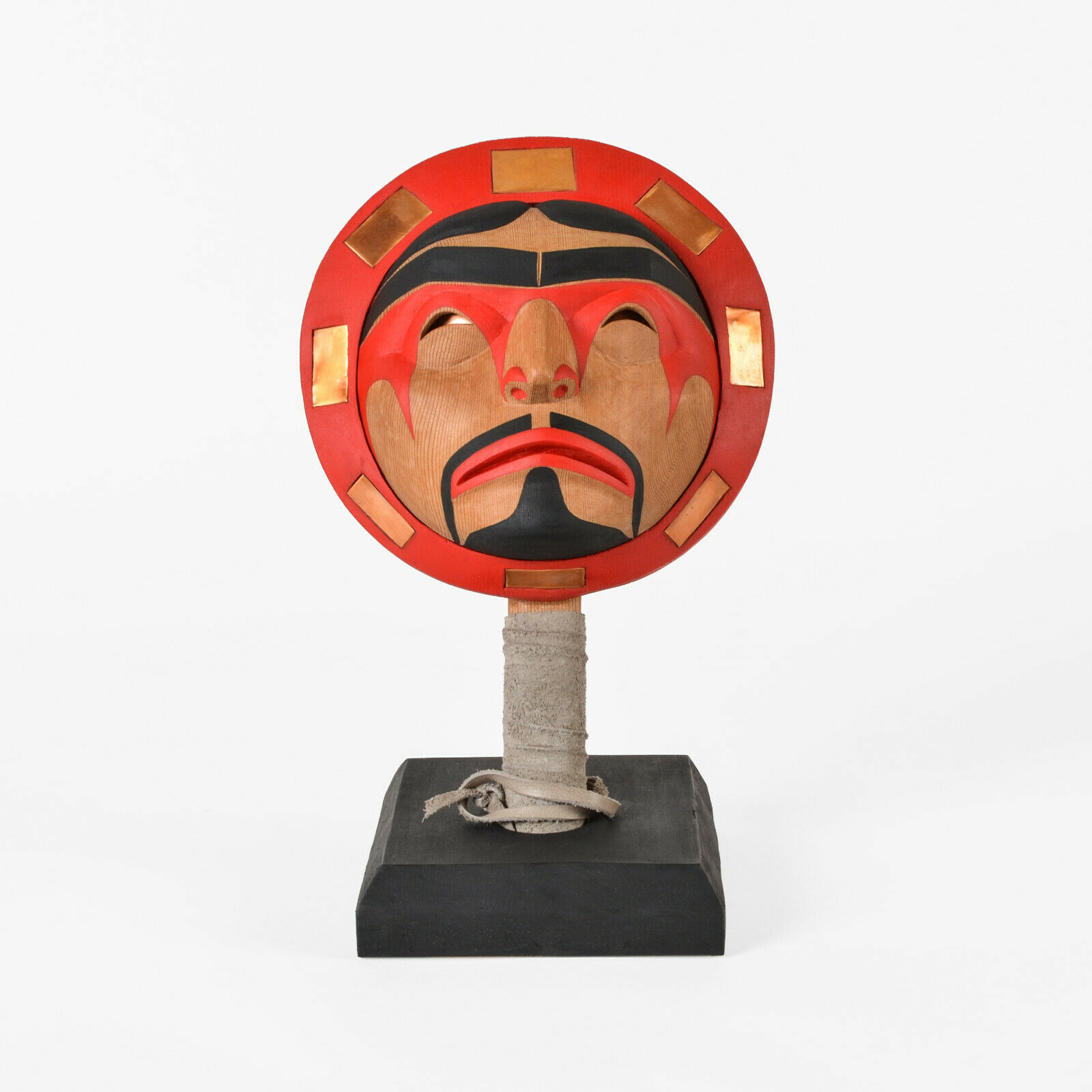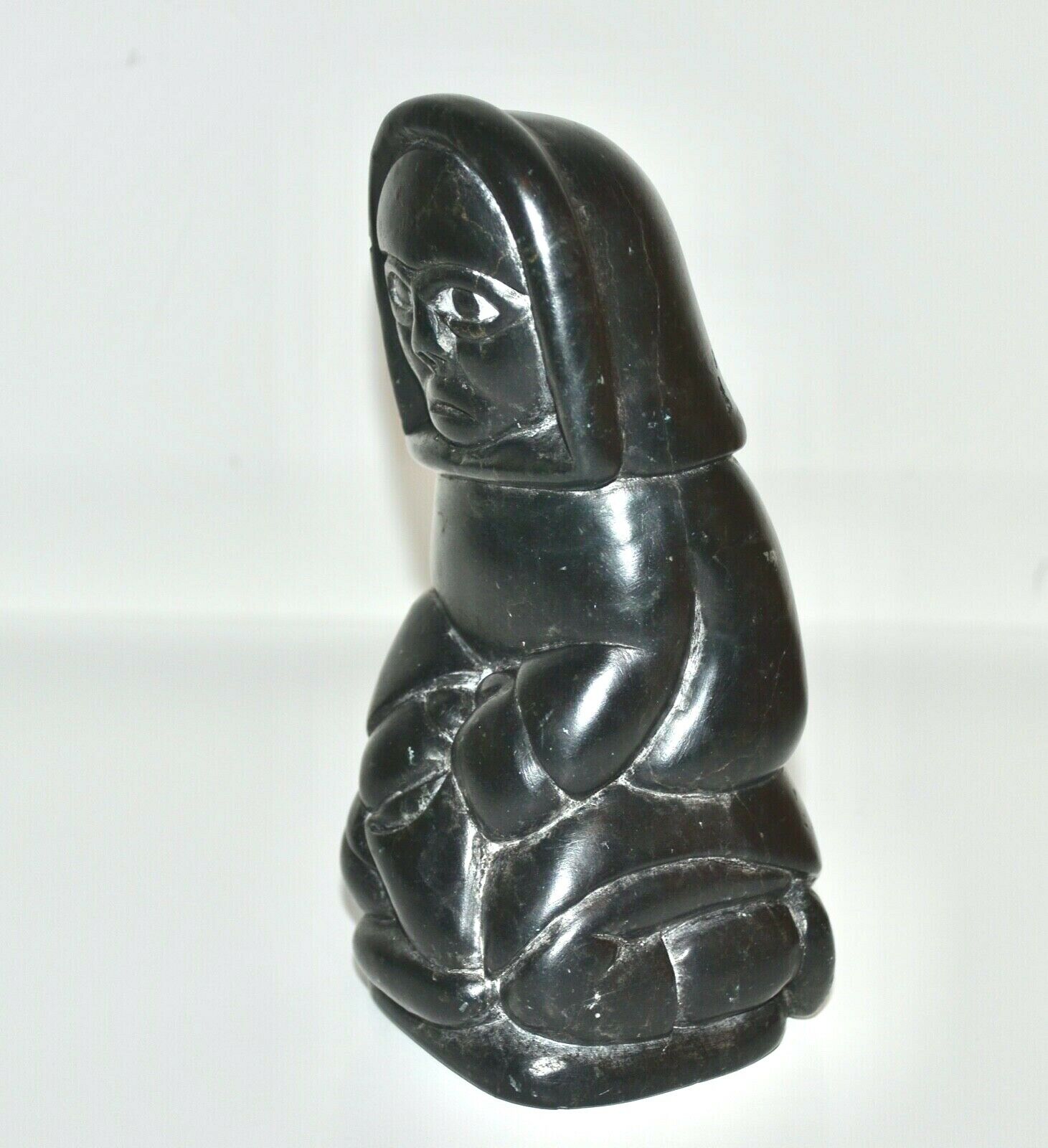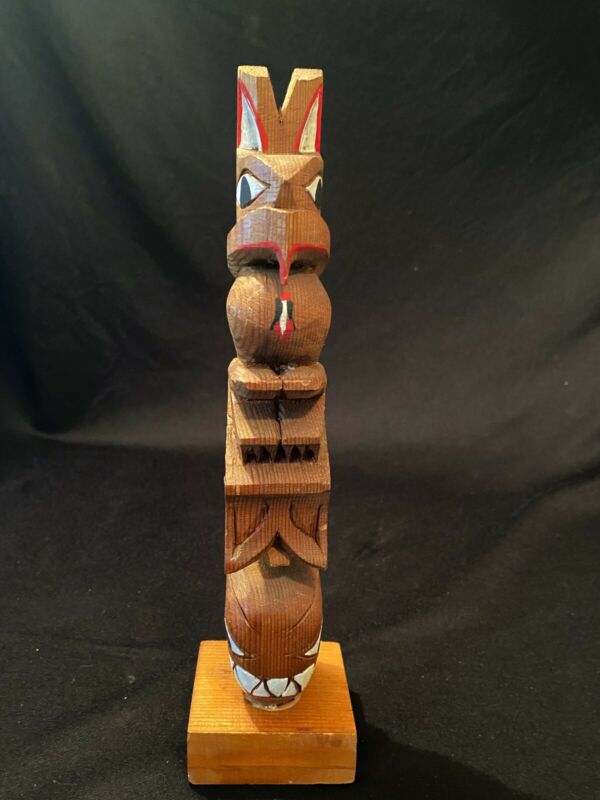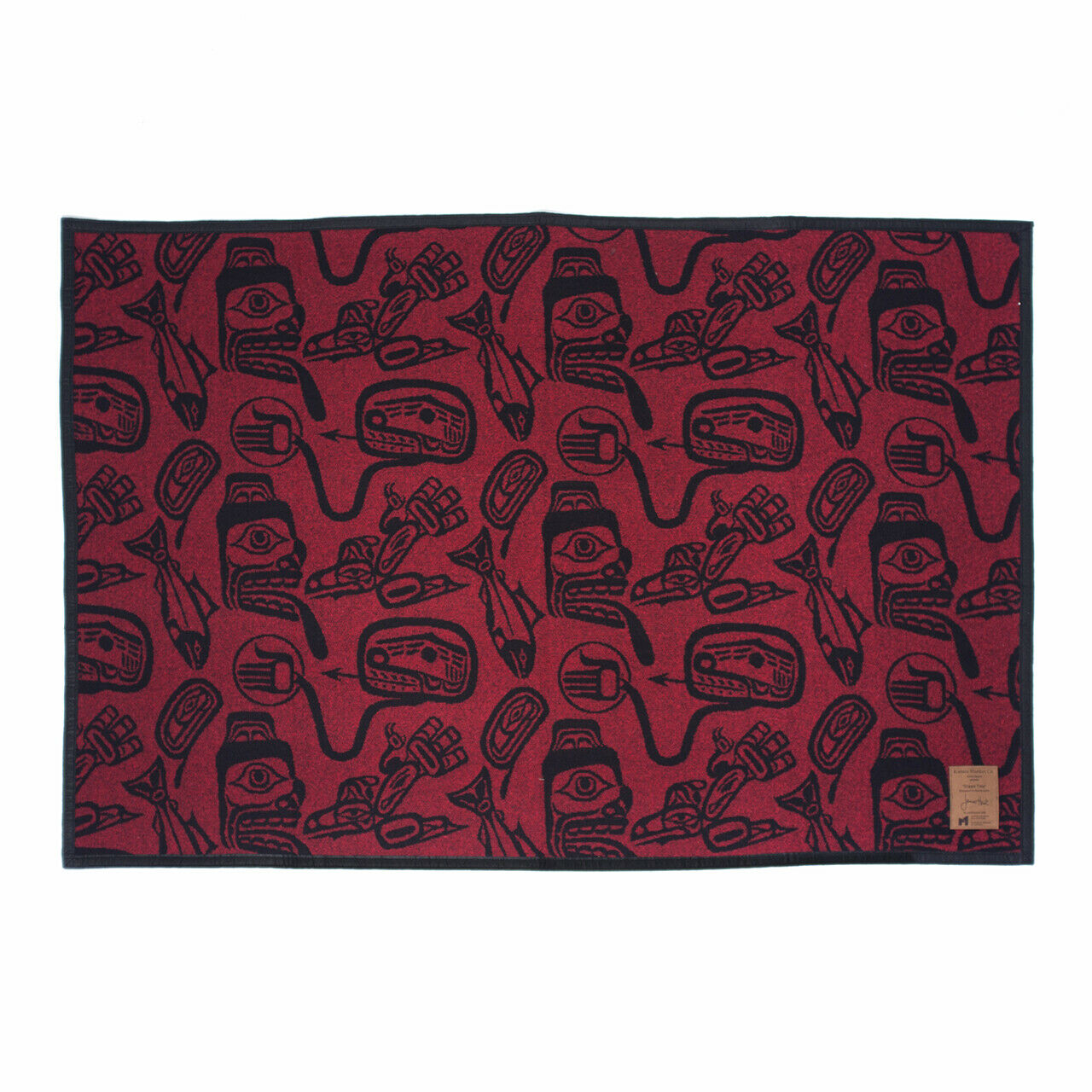-40%
Cedar Northwest Native Moon Rattle with Copper Inlays
$ 897.6
- Description
- Size Guide
Description
Imbue your space with some Pacific Northwest ambiance. This expertly carved red cedar rattle depicts a 'Full Moon' and is embellished with copper inlays. It will look stunning on a desk or bookcase, and the coloration will pair well with most interiors. It is by First Nations artist Gene Brabant and measures 13" x 8" x 5" including the stand.While significance varies Nation to Nation, there are some associated traits and representational qualities of the Moon that can be applied cross-culturally. The Moon is featured in the stories of many Coastal Nations, though the origin of Moon varies story to story; even within one Nation. Many Northern Nations credit The Raven for the presence of the Moon – which is sometimes described as being a chip off of the Sun that The Raven clumsily dropped while returning it to its place in the sky. The Moon is usually represented as a feminine being with a large labret – but it is also commonly depicted without this element. Many cultures, on Turtle Island and elsewhere, recognize the Moon as a feminine being. However, as there are always exceptions, the Nuu-chah-nulth view the Moon as a masculine being and the Sun as its feminine partner. The moon is known as a protector and guardian. It is also associated with abilities to effect human emotions as well as transformation, due to its influence over the tides and the colour of the sky.
Gene Brabant spent his childhood watching late Kwakwaka'wakw master carvers Mungo Martin and Henry Hunt work on the Thunderbird Park project at the Royal Museum of British Columbia in Victoria, BC. He was offered his first apprenticeship by Kwakwaka'wakw artist Tony Hunt when he was just fifteen years old, but did not accept the offer until he was twenty-three years old. In 1971, Gene began carving full-time with Tony and John Hunt. He also worked with adopted Kwakwaka'wakw carver John Livingston. Gene has been trained in Kwakwaka’wakw style, but he often works in classical Nuxalk or Bella Coola style. He is artistically inspired by Nuu-chah-nulth artist and carver Joe David, and his painting style is influenced by Kwakwaka'wakw artist Willie Seaweed. Gene has travelled extensively to visit museums and study older pieces in collections, and his work is often an interpretation of these older pieces.
"native rattle", "shaman rattle", "haida rattle", "native american rattle"













